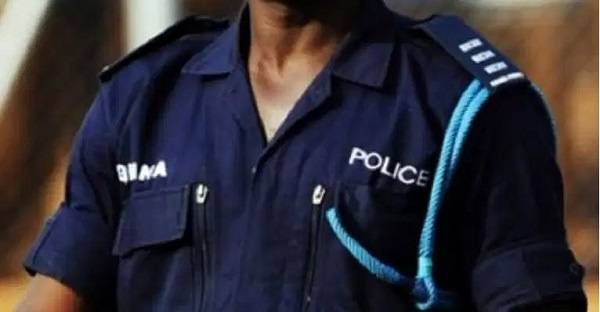Police officer demanded bribe be paid via MoMo – Prof. Aning recounts.
Prof. Emmanuel Kwesi Aning, Director of the Faculty of Academic Affairs and Research at the Kofi Annan International Peacekeeping Training Centre, KAIPTC, has lamented the spate of corruption in the country calling for concerted efforts to combat same.
In an interview over the weekend, the academic described corruption as endemic, figuratively referring to it as “the glue that binds the country together.”
He asserted that the edifice called Ghana was set to collapse without corruption whiles lamenting how deep rooted the scourge had become in national life.
He disclosed an incident where a police officer who stopped a friend of his had demanded that a bribe sum be paid through mobile money.
“A police officer accosted my friend and demanded that the bribe that he was asking for must be made through MoMo, and so a report has been made about that because MTN was kind enough to send us some of the details,” he said on Joy FM’s weekend news analysis programme, Newsfile.
He was on the show to give his views on a recent corruption report that stated that majority of adult Ghanaians had admitted giving bribes over the last yer.
“But my shock in the quantification of the extent and the value of corruption that this report places on the table is that we are very good on the rhetorical side, flowery rhetorics of established institutions whose willingness and capacity comes to grips with this problem,” he stressed.
The Ghana Police Service according to the report was the most bribe-prone institution with the Ghana Revenue Authority, GRA, the judiciary and Road Safety Officers also ranking high.
About the Corruption in Ghana survey – GNA report
The maiden national survey, titled: “Corruption in Ghana – people’s experiences and views” also disclosed that more than 17.4 million bribes were paid in the same period.
The survey was conducted by the Commission for Human Rights and Administrative Justice (CHRAJ) in collaboration with the Ghana Statistical Service (GSS) and the United Nations Office on Drugs and Crime (UNODC).
It collected evidence-based information from 15,000 households across the country involving people who were 18 years and older on the forms of corruption affecting the population of Ghana.
This is to determine the prevalence of the situation and its prevailing typologies, give benchmark indicators that can be used to inform relevant policies to curb administrative corruption in various public institutions in the country.
Apart from the cash payment, which contributed 84.8 per cent of the forms of bribe paid, 13.3 per cent of the bribes paid were food and drinks; 9.7 per cent, exchange for other services; 5 per cent valuables, and 2.2 per cent animals.
The bribes were paid by 33.6 per cent citizens to speed up procedures; 15.8 per cent, as a sign of appreciation; 13.8 per cent, to avoid the payment of fine; 10.8 per cent to avoid problems, and 3.1 per cent, to avoid the cancellation of public utilities.
Ghana drops on Corruption Perception ranking
According to the 2021 edition of the annual corruption ranking chart by Transparency International, Ghana ranked 73rd out of 180 countries on the Corruption Perception Index, CPI, report released on April 4.
“Ghana’s current performance is still below 50 which is the expected average, thus leaves much to be desired,” the report noted.
Out of 49 African countries ranked, Ghana placed 9th with Senegal, each bagging a score of 43.




No comments yet
Be the first to share your thoughts!